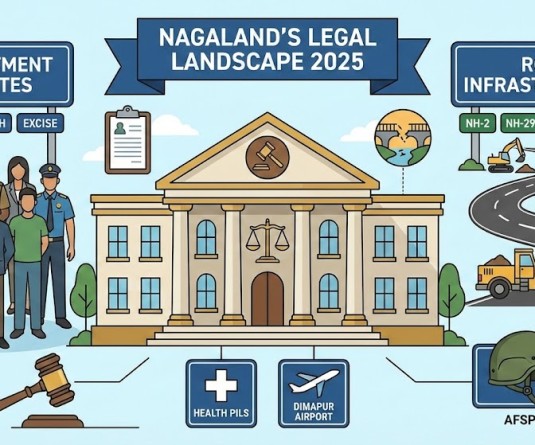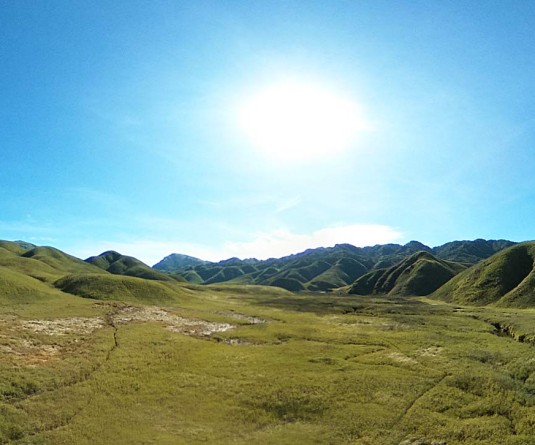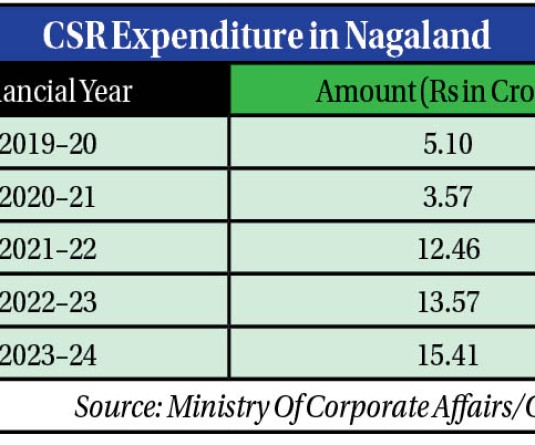Representatives from different Indigenous Peoples organisations based in NE and other regions during the International Day of the World’s Indigenous Peoples 2025 celebrated at Diphu, Karbi Anglong on August 9. (Morung Photo)
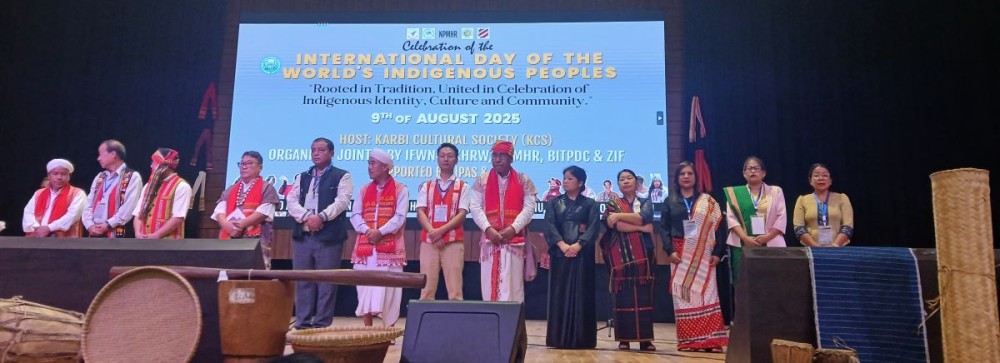
Morung Express News
Diphu | August 10
As a mark of shared dream and resilience, the International Day of the World’s Indigenous Peoples 2025 was observed under the theme “Rooted in Tradition, United in Celebration of Indigenous Identity, Culture and Community” at Diphu, Karbi Anglong on Saturday.
The celebration was hosted by Karbi Cultural Society, and supported by Indigenous Peoples of Asia Solidarity (IPAS) and Asia Indigenous Peoples Pact (AIPP).
The elaborate event was organised by Borok Indigenous Tripura People Development Centre (BITPDC), Indigenous Women’s Forum North East India (IWFNEI), Karbi Human Rights Watch (KHRW), Naga Peoples Movement for Human Rights (NPMHR), and Zo Indigenous Forum (ZIF).
In his message, Neingulo Krome, Secretary General of NPMHR, hailed the progress of Karbi Anglong as a testament to indigenous self-determination. Addressing the gathering, Krome noted that despite not achieving full Statehood status, the region's development demonstrates how communities flourish with autonomy. ‘Karbi Anglong is a living testimony that you have outgrown the so-called majority communities and advanced communities, including all the people in the Northeast India,’ he stated.
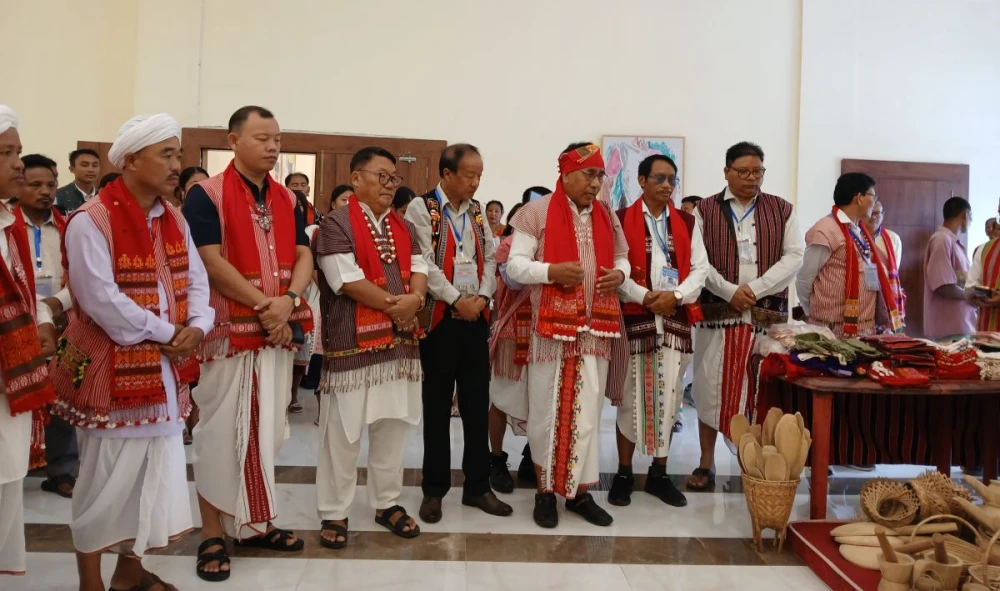
The rights activist emphasised indigenous peoples’ capacity to progress when granted self-determination. ‘When we decide our own path according to our genius, indigenous people of the world, who are called the keepers of the earth, can march much faster than the rest of the world,’ Krome asserted.
However, he cautioned against forces fortifying indigeneity to create divisions. ‘We must grow stronger in strength through solidarity, respecting both our rights and our neighbours' aspirations,’ Krome urged, advocating for inclusive development in the region.
Anthony Debbarma, Secretary General of BITPDC, Tripura in his message made a call to unite as one Indigenous Peoples to protect our language, land, culture and identity. “We were the first settlers—governing ourselves with our own laws, language, and culture. Now, our lands are being taken from us. We must stand together to protect our forests and our land,” he appealed.
Mayalmit Lepcha, president of the Sikkim Lepcha Indigenous Tribal Association and general secretary of the Affected Citizens of Teesta, issued a fervent appeal to indigenous communities across the Northeast to unite against government-backed hydroelectric projects, calling them “incompatible with the region’s ecology and identity.”
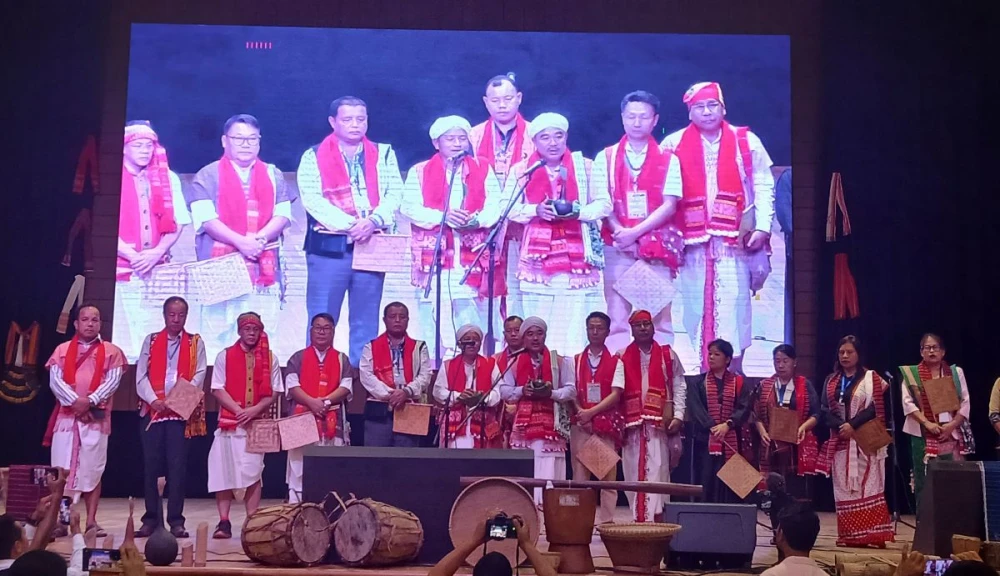
“Land is not just a resource, it is our identity,” Lepcha asserted, urging communities to leverage indigenous knowledge to safeguard their ancestral territories. She emphasised the need to “make a life out of our stories,” advocating for sustainable alternatives rooted in traditional practices. Lepcha concluded “Come, give, and serve your community,” stressing collective action to resist displacement and cultural erosion.
Khesheli Chishi, Chairperson of NIWA and Advisor to the IWFNEI, reiterated solidarity with Indigenous communities worldwide to uphold their collective rights, dignity, and wisdom amid the growing influence of Artificial Intelligence (AI). She emphasised the urgent need to address both the risks and opportunities posed by AI under this year’s theme, “Indigenous Peoples and AI: Defending Rights, Shaping Futures.”
Chishi stated, “While Al threatens to deepen digital divides, perpetuate bias, and commodify Indigenous knowledge without consent, it also offers potential to protect our languages, document our histories, and amplify our voices— if governed ethically and inclusively.”
She outlined three key demands: Ethical Al that respects Indigenous data sovereignty, free, prior, and informed consent, and collective intellectual property rights; Inclusive design and governance of digital technologies that reflect the lived realities and knowledge systems of Indigenous (women) and Peoples; and Investment in digital access and capacity-building for Indigenous youth and women to shape Al that serves their communities.
Asserting that the day must be a moment of action, not just reflection, she stated. “As we have always done, Indigenous Peoples continue to lead with resilience, wisdom, and innovation. We are not passive observers of technological change - we are shaping it. Let us therefore walk forward together with courage, with dignity and with the deep wisdom of our peoples”
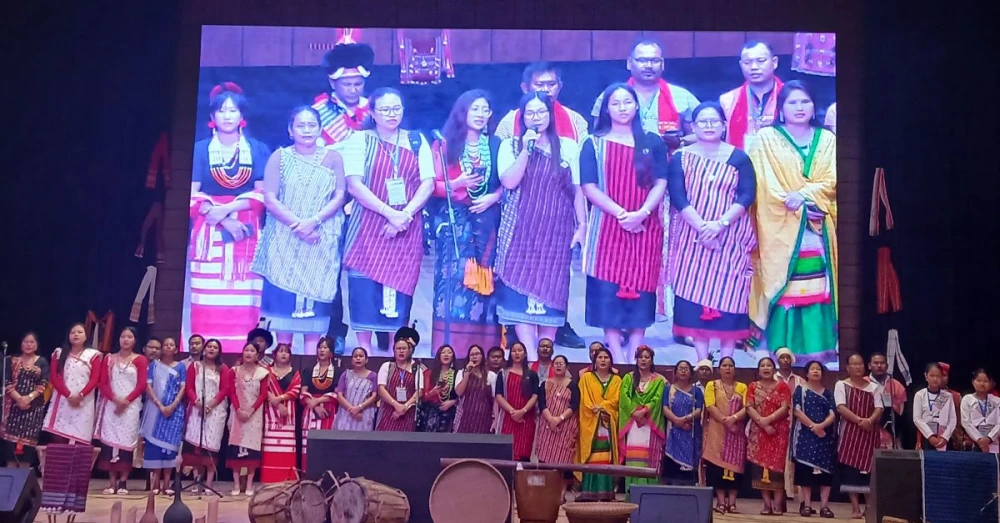
Call for Indigenous Unity
The guest of honour, Lalmuanpuia Punte, MLA and Advisor to CM Mizoram highlighted that Indigenous rights have rightfully gained global attention after prolonged neglect. Marginalised and exploited for too long, Indigenous communities worldwide continue facing threats to “the very foundation of their identity, land, and culture.”
Indigenous Peoples face diverse challenges, displacement, cultural erosion, political exclusion, or economic marginalization, yet united globally to demand their rights. “This collective effort gave birth to a comprehensive declaration one that recognises our right to self-determination, to our land, to our culture, and to our way of life,” the MLA stated.
He cautioned that unsustainable development practices threaten indigenous identity and regional stability, while calling for community-led growth models. “Today, one of the greatest challenges we face is that of development. Development in itself is not bad —indeed, we welcome it — but too often, and it is carried out in ways that alienate us from our land, dispossess us of our resources, and leave us without any share in the benefits.”
Punte said, “In such cases, development does not uplift us; it destroys us. Our identity, our culture, and our customary practices are at risk of being lost forever. When that happens, peace and security are also threatened, for there can be no true peace without justice.”
The legislator emphasised that indigenous communities must reject initiatives jeopardizing their survival. “We must insist that no development takes place without our consent, and that it must be designed to benefit us, not displace us.”
He observed that in NE ‘though our languages, traditions and histories are diverse, our struggles share common threads,’ however, we have not yet achieved the unity our situation demands, but our survival depends on finding common ground “based on mutual respect and shared purpose.”
He reminded that our ancestors survived by working together, by protecting one another, and by safeguarding the land and traditions that gave them life and added, “Let us carry that legacy forward. Unity is not an option; it is a necessity.”
During the occasion, video messages from Jenie Lasibang, Executive Director, IPAS and Pradyot Bikram, the King of Tripura were also projected. The Karbi Traditional King, Sar Longsing Ronghang led the Traditional Prayer. The event was also addressed by Gam A Shimray, Secretary General of the Asia Indigenous Peoples Pact (AIPP).
Several cultural performances were also presented including the Man Tai dance, Tiwa dance, Drum Beating by women group, Chicken dance by Chakhesang Züve Cultural Club from Nagaland, traditional string (Kumdengdang) and others.
As part of the celebration, the Indigenous Peoples Fair was inaugurated by Sar Humsing Bey, President, Karbi Cultural Society.



